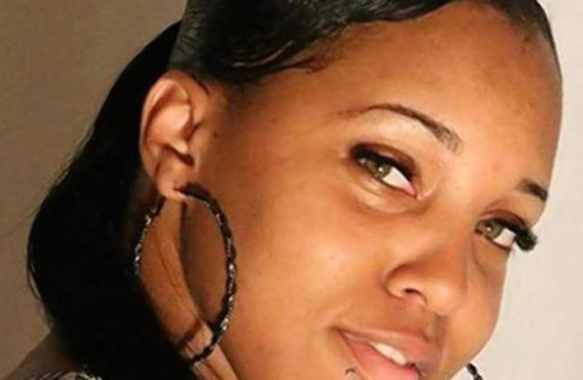When We Ignore or Excuse Street Harassment, Could That Be a Crime?
Complicity? Duplicity? What Do We See?
Do we blame the victim, even after a killing? Possibly? At least for now, it would seem a “refusal to identify and take action” against oppression and victimization cannot be denied. The question is; will we continue to defend it?
Opinion: On Mary “Unique” Spear’s Death & The Black Men Who Allowed It
When the news broke that 27-year-old Mary “Unique” Spears was murdered by a man after rejecting his advances on the streets, I thought this would be the last and final straw that broke the camel’s back. I imagined the Black men, who previously rejected the importance of the movement against street harassment, would finally reconsider their position after witnessing the lengths to which male dominance and feelings of “entitlement” to female attention could lead: to murder.
Sadly, however, the first response many Black men on my Facebook had was plain denial that this issue is, in any way, connected to issues explored by the street harassment movement. The most common arguments posed:
“He was just a psychopath, that has nothing to do with all men.”
“She probably knew him, somehow.”
“This has nothing to do with street harassment.”
First, let’s go over the details of this incident. As reported by FoxDetroit:
“A confrontation led to a fight, which ended in gunfire”. Further, “He said, ‘Can I get your name, your number,’” Spears’ relative said. “She said, ‘I have a man I can’t talk to you.
But her family says the harassment continued until 2 am when on their way out, they say the man grabbed and hit Spears. Her fiancée confronted him as a fight broke out.”
So no, per the report and the statements of the family, the victim did not know her assailant. And about the claims that this murderous individual’s actions had nothing to do with street harassment: The movement against it specifically addresses men’s feelings of entitlement to a women’s attention and their bodies in public spaces, that are rooted in male acceptance of patriarchal norms. A man who kills a woman in public, for refusing to give him her number or entertain his advances presents an extreme, but still illustrative, example of precisely just that.
The Black man’s refusal to identify and take action against Black female oppression and victimization in public spaces is fueled not only by a potent amalgamation of misogyny and male chauvinism that are all rooted in White dominance and patriarchy, but also enabled by Black male, self-adopted powerlessness and attempts to avoid the need to take personal responsibility.
For some Black men, White supremacy plays a dual role: both oppressor and scapegoat. When societal issues of racial discrimination arise, the blame is rightfully placed on the system of White dominance which created and enables it. However, when issues of female oppression and victimization within the Black community arise, for Black men, it is always easy to deflect the argument by pointing the finger to the “White man”. It is as if the “White man” is the Black man’s figurative “big brother” who must be blamed for the wrong doings of his littler brother who is too immature to be personally responsible.
The “emasculated”, oppressed Black male does not view his behavior as impactful– whether positive or negative. He is small and insignificant, his actions are meaningless, inconsequential. So he continues to passively condone the perpetuation of White patriarchy and female oppression in the very community which he should be fighting to protect and uplift.
If Black women question, “Why is hip-hop music riddled with misogyny?” The Black man responds, “he did it,” with fingers pointed to “The White man”.
When we inquire, “Why are Black women being harassed in the streets and in public spaces by Black men?” The Black man pouts like a child, expecting his innocence– that he is a victim, not perpetrator of White dominance– to redeem him.
However, Black women do not fall for this attempt at deflection. Like any good mother, we are well aware of which child is the culprit of which transgression. We can identify, with precision, the markings or misdeeds of each child and implicate the transgressor, accordingly.
Admittedly, we are tired of being tasked with this tiresome work that is seldom respected. As we battle constantly with childish, incessantly-burdensome and stubborn racism, we expect to be assisted by men, our men– Black men– yet instead we are often further burdened by another immature adolescent: sexism/patriarchy in the Black community.
It must be acknowledged that there are the strong Black men, who stand beside Black women and call for an end to the mistreatment and victimization of female bodies. These men, along with Black women, must force these Black male minds from frightened, adolescences to empowered adulthood.
The mistreatment, abuse and victimization of the Black women by men must end. That can only be achieved– in the Black community– when more men are capable and willing to step up to the plate. It is time that all Black men take responsibility for the role they have played (both knowingly and unknowingly) that has perpetuated the system of patriarchy. A system that made Mary “Unique” Spears, and millions of other innocent Black women, targets and victims.
More By Tiffanie Drayton >>>
Tiffanie Drayton is a freelance writer focusing in race and gender issues and a proud New School University Alumna. Follow her on twitter @draytontiffanie.
This piece was reprinted by EmpathyEducates with the kind permission of the Author. We thank Tiffanie Drayton for forever giving voice to what is too often neglected.












Leave A Comment